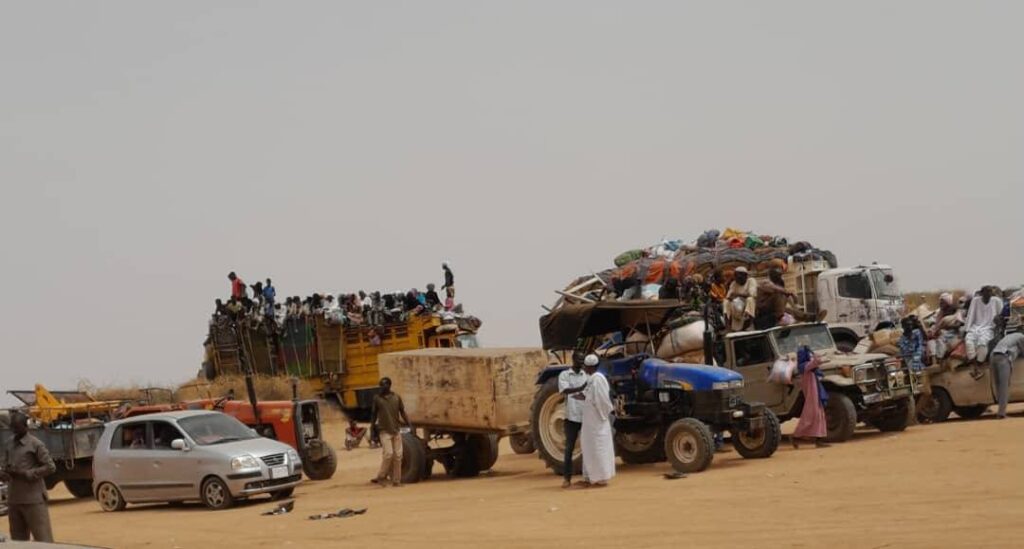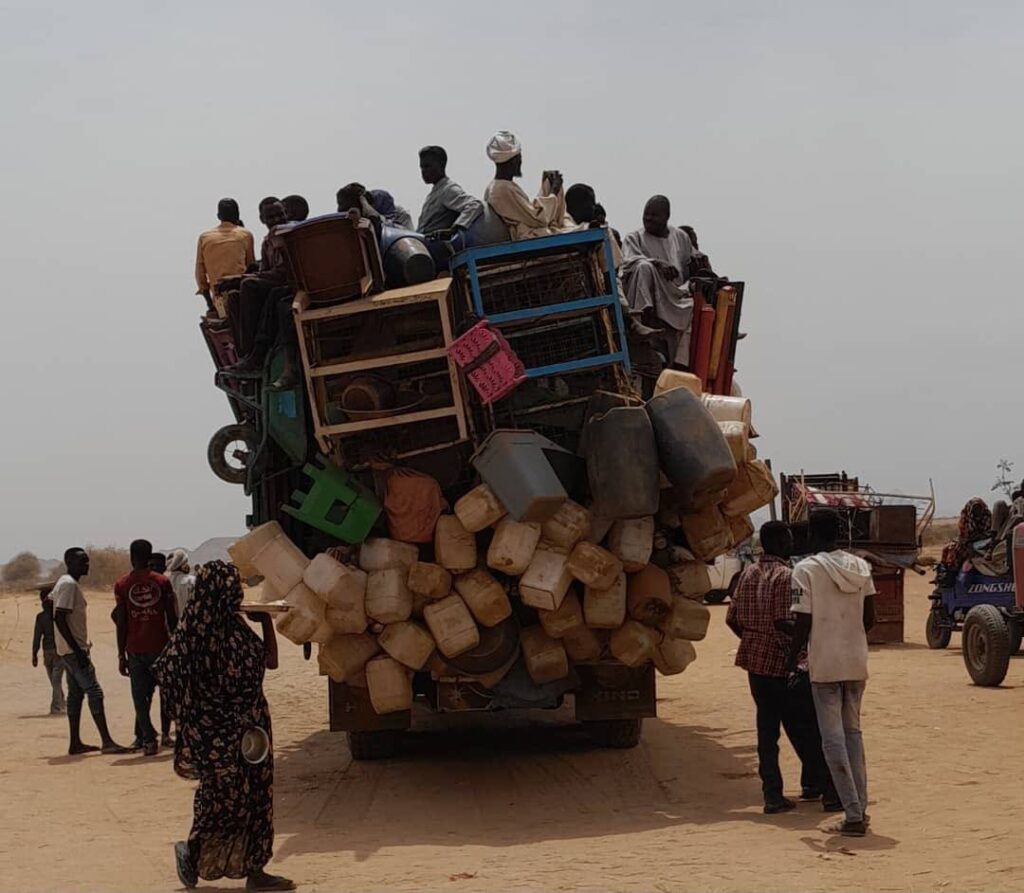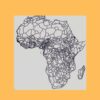By Franck Petit
Surrounded, starving, under artillery fire and awaiting an imminent offensive by the Rapid Support Forces (RSF), El-Fasher, the capital of Darfur, is “hell on earth”. On Tuesday 11 June, the prosecutor of the International Criminal Court (ICC) launched a broad appeal for testimony in relation to allegations of crimes committed in Sudan, particularly in El-Fasher. Suliman Baldo, executive director of the Sudan Transparency and Policy Tracker and expert on conflicts resolution in the region, analyses the situation.
JUSTICE INFO: On Tuesday June 11th, the prosecutor of the International Criminal Court (ICC), Karim Khan, launched a campaign for information on what is happening in Sudan, particularly in El-Fasher in Darfur. Is this call commensurate with the crimes committed?
SULIMAN BALDO: The truth is that the ICC prosecutor’s office has already opened several investigations in Sudan. The first one goes back to the period of the genocide campaign in Darfur, from 2003 to 2004, which continued thereafter with other massacres. This investigation led to the indictment of both Sudanese officials and rebel leaders, and one militia leader is now appearing before the ICC judges. After the events in Geneina (West Darfur), between April and June 2023, when a massive campaign by the Rapid Support Forces [RSF, grown out of Janjaweed militias] targeted people of Masalit origin, the ICC opened an active investigation into these massacres. It has already launched a call for witnesses, survivors and independent investigators, asking them to cooperate on what happened in Geneina and West Darfur.
So yesterday’s appeal is a third step, which I interpret as an extension of the ongoing investigations. The war in Sudan is characterised by atrocities committed by all the belligerents across the country, and we need an investigation that is commensurate with the current crisis, which is putting civilians at great risk. It seems appropriate to me to extend the ICC investigations to the whole situation in Darfur and to the whole country. The very nature of the conflict calls for it.

So you think this is the right time and the right method?
I believe so. In all these situations, you have to consider the reality of social and community life in Sudan, where there are a large number of human rights associations, targeted communities and humanitarian organisations. A whole generation of people are trained at various levels on the issue of monitoring violations and are prepared to pass on their testimony to the ICC prosecutor. This is in addition to the work of international organisations in documenting current war violations.
For example, there have been independent investigations by Masalit community associations, who have been to the field, conducted interviews and published the results of their investigations. I’m sure they had the opportunity to share them with the ICC. It is also the case for international associations, such as Human Rights Watch or the Darfur victims’ defence association, which are in constant communication with the ICC. There are also reports from independent journalists and media outlets with correspondents on the ground. The British newspaper The Guardian has a war correspondent in El-Fasher as the fighting is going on. Sky News and RFI have also done a remarkable job, as have France 24, CNN and so on.
In my view, there is no shortage of independent bodies working to document crimes and bring them into the public arena. Perhaps we can hear complaints that the international media are not paying enough attention to the crisis in Darfur, but at the same time there have been some very serious investigations, approaching the level of proof required for an international criminal investigation.

Are the ICC investigators on the ground?
The Prosecutor has stated that they have teams East of Chad and in Port Sudan, where the de facto authority of the current government is based.
What information do you have about the situation in El-Fasher?
We have almost daily communication with sources in the city: the situation is really very worrying. There is an artillery duel between the Sudanese army and the RSF in a densely populated town, with nearby camps such as Zamzan, which has had 400,000 internally displaced people since the 2003-2004 wars. Until now, El-Fasher has been a quiet city, thanks to the efforts of the local mediation committee, made up of dignitaries, lawyers, activists, young people and women. It had managed to maintain calm during the first ten months of the war [which began in April 2023] by going back and forth between the RSF and the army. This traditional, community-based diplomacy became ineffective after some Darfuri armed groups decided to abandon their position of neutrality which guaranteed local peace, to side themselves with the Sudanese army. We need to put pressure on the warring parties to stop this madness.
Does the ICC have any impact on peace in this situation?
No. The Prosecutor has a specific, very limited mandate to investigate violations of international law, which are massive and systematic, and which go beyond politics. I don’t think it’s appropriate to associate the ICC with these calls for peace. Their work lies elsewhere.
The impact is to remind military leaders that there will be consequences if they or their soldiers attack civilians. This is a very important consideration for commanders, who must take into account the fact that their behaviour on the battlefield will now be watched and documented by independent witnesses, and that there will be consequences for these commanders in their capacity as line managers. The ICC must act everywhere at the same time to show that international law applies to everyone.
Do you see a difference in treatment between what is happening in Sudan, and in El-Fasher in particular, and what is happening in Israel-Palestine, particularly in Gaza?
I don’t see any contrast in the ICC’s treatment, since in both cases the aim is to hold accountable those who have carried out attacks against civilians, whether in Gaza, in Palestine or in Darfur. That is what the ICC has actually done, by indicting the Prime Minister of Israel and the leaders of Hamas, whereas before, the ICC focused mainly on Africa. It did not get involved in conflicts anywhere else, and this was seen as a double standard for much of the ICC’s history.
Is this the real change?
Yes…, it’s an encouragement. The ICC would no longer be involved in international geopolitics, but it would go where the crimes have been committed, full stop.
Can we compare the siege situation in El-Fasher with the one in Gaza?
Everything indicates that the RSF are in the process of surrounding El-Fasher and preparing an offensive to take the city. Fierce fighting is expected in the coming days, while many civilians have already been killed and tens of thousands displaced.
Since mid-April, the RSF have been preventing the entry of any convoy carrying essential goods for the population, such as food, health products and medicines. They have also tried to take control of a depot that supplies the town with drinking water. In the camps for displaced people in El-Fasher, there is talk of a famine situation. It’s comparable, I think, with what’s happening with the Israeli army’s encirclement of Gaza: the aim is to deprive the civilian population of their means of survival. It’s comparable.
This article was first published by Justice Info:

